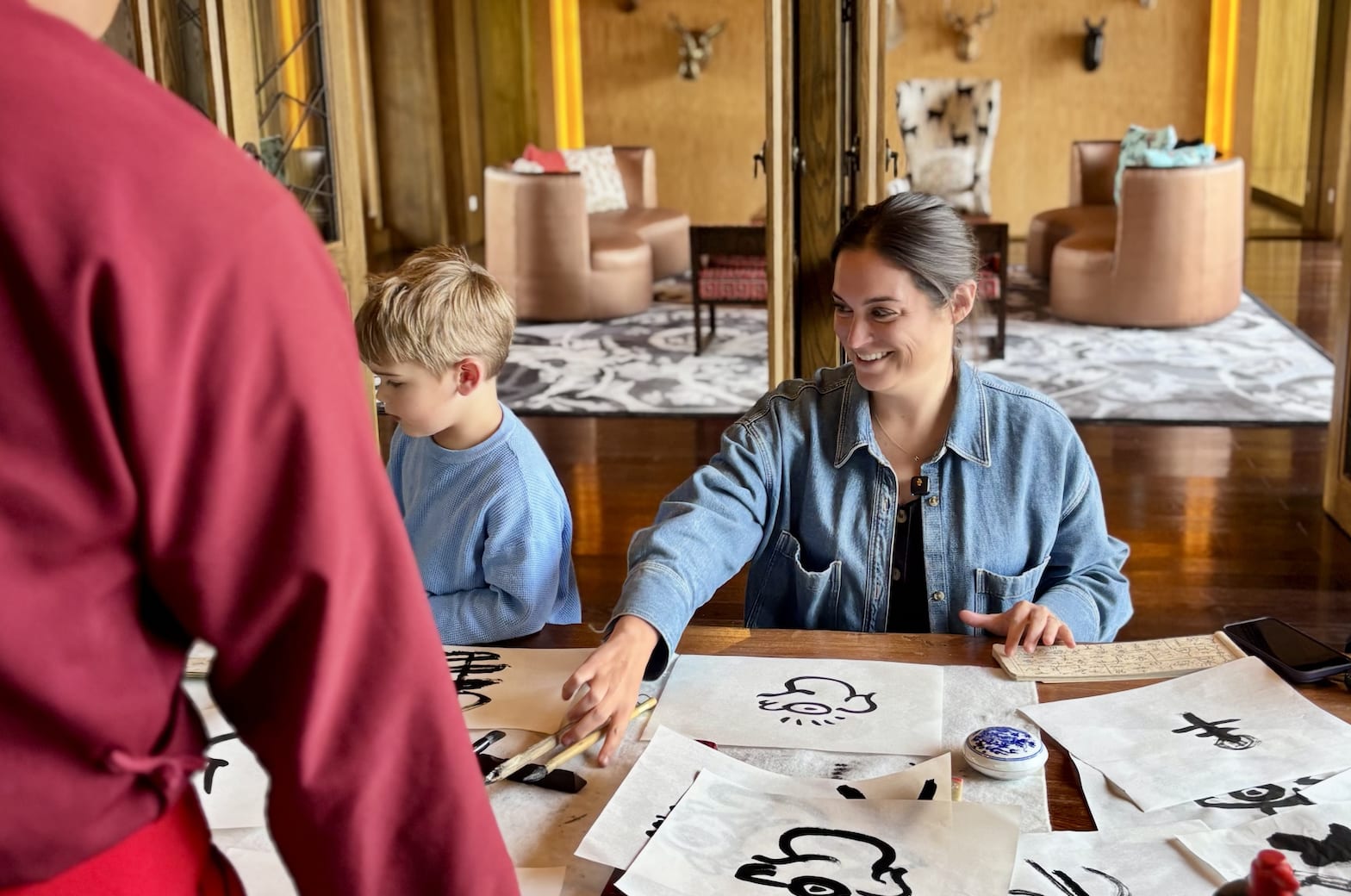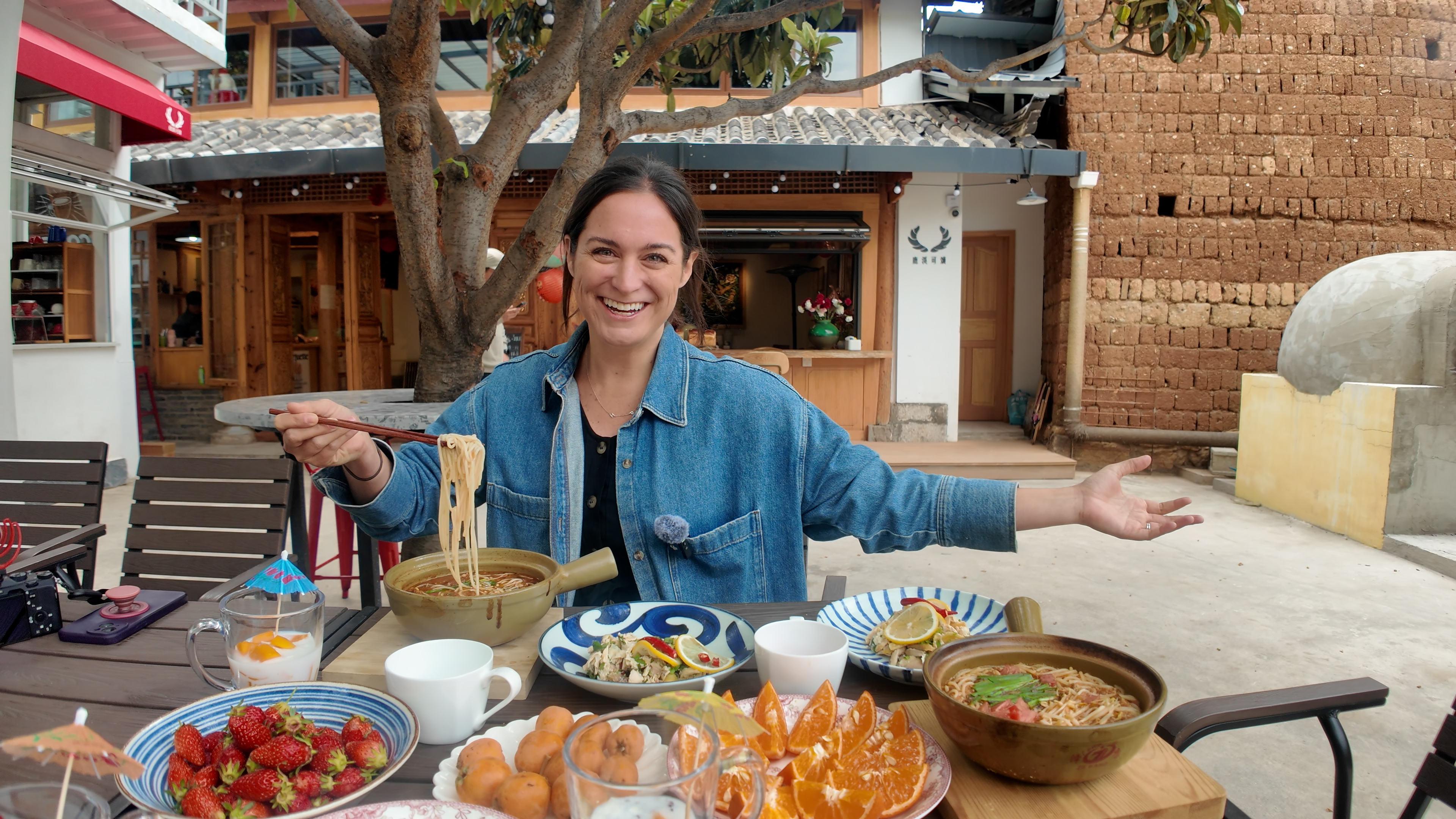
Curator’s statement
Lijiang was an unexpected highlight of a recent trip through China—one of those places that lingers in your memory long after you leave. The snow-dusted peaks, quiet canals, and rich Naxi culture made it feel both peaceful and deeply alive. A workshop on Naxi script, an unforgettable local market (seriously one of our favorites ever), and learning about the culture through its food added layers of meaning to our experience. With a little effort—and the right tips—it’s possible to look beyond the surface and connect with the true heart of this fascinating place.
The Fora Difference
Book with Stephanie to access exclusive perks and experiences on your trip.
Killer perks
Free upgrades, spa credits and more—we got you
Personalized recs
Customized travel planning for your style
Insider knowledge
Expert advice from people who’ve actually been there
Where to stay in Lijiang
Unlock perks by contacting Stephanie to book your trip.
Things to do in Lijiang

Stephanie participates in a Dongba script workshop with a local teacher, one of only 200 people in the world who can still write it
Market visit & cooking class with Lost Plate Food Tours
This immersive experience starts at a vibrant local market—truly one of the best we’ve visited anywhere in the world—where you’ll explore seasonal produce, foraged herbs, and local delicacies. Then, head to a nearby home kitchen to cook (and feast on!) traditional Naxi and Yunnan dishes with a local chef.
Dongba script writing workshop
Dongba script is the ceremonial pictographic language of the Naxi people—one of the oldest still in use today, with only around 200 people able to write it. Our workshop, arranged through Hotel Indigo, was led by a Dongba priest who shared the script’s spiritual significance and guided us in painting our own characters.
Impressions of Lijiang Show
Directed by Zhang Yimou—famed for choreographing the 2008 Beijing Olympics Opening Ceremony—this epic outdoor performance is staged at the base of Jade Dragon Snow Mountain. Featuring over 500 performers and galloping horses, it’s a stunning celebration of the region’s ethnic diversity and mountain culture.
Guided tour of Lijiang Ancient Town
While the Old Town can feel overly manufactured, a local guide brings its stories and traditions back to life. Post-Covid, only about 50 English-speaking guides remain—our guide, Hong (reach out for her contact!), was warm, insightful, and full of heart, making even the most crowded alleys feel special.
Naxi drumming class
If you have the opportunity, a hands-on drumming session is a fun and meaningful way to engage with Naxi culture. Lijiang’s classical music tradition is one of the oldest in China, and learning the rhythms firsthand—alongside traditional instruments—offers a joyful window into its rich musical heritage.
Places to eat & drink in Lijiang

Stephanie with a Yunnan feast cooked at a local Naxi home in Lijiang, China
Local restaurants are plentiful in Lijiang, and instead of focusing on specific spots, make sure to seek out these signature dishes during your visit. Each one offers a taste of the region’s unique flavors and culinary traditions.
Yunnan ghost chicken: A local delicacy, Yunnan ghost chicken features tender, marinated chicken cooked with an array of herbs, spices, and chilies. The bold flavors and complex seasoning make this dish unforgettable, often served with a side of dipping sauces for added depth.
Baba: Lijiang’s take on flatbread, Baba is a fluffy, baked bread that can be stuffed with a variety of fillings—sweet red bean paste or savory pork and beef. It’s a perfect snack or accompaniment to tea, and an essential part of the Lijiang dining experience.
Xiao Guo Mixian: This dish is a Yunnan specialty, with thin rice noodles served in a light, fragrant broth and accompanied by a variety of toppings such as minced pork, pickled vegetables, and chili oil. It’s a comforting, satisfying dish with a wonderful balance of flavors.
Yak butter tea: A traditional beverage in the region, Yak Butter Tea is made by blending yak butter, tea, and salt. It’s rich, savory, and warming—perfect for refueling while exploring Lijiang’s scenic landscapes or braving the cooler mountain air.
Mushroom dishes: The mountainous terrain around Lijiang is abundant with wild mushrooms, and these are frequently featured in local dishes. Whether stir-fried, stewed, or served in hot pots, Lijiang’s mushroom offerings are an earthy and flavorful highlight that showcases the region’s natural bounty.
Need to know
When visiting Lijiang, keep in mind that it sits at an altitude of about 2,400 meters (7,874 feet) above sea level. This means that some visitors may experience mild altitude sickness, especially if you’re coming from a lower elevation. To minimize the effects, stay hydrated, avoid heavy exertion during the first few days, and take it easy as your body acclimates.
In addition, the weather can be unpredictable, with warm days and cooler evenings, so it’s a good idea to bring layers. Lijiang is also a popular tourist destination, so the Old Town can get crowded, especially during peak seasons—early mornings or late afternoons tend to be quieter for a more relaxed experience.
For more inspiration and insider recommendations, visit our China page.

Travel Advisor
Steph Hays

Get in touch with Stephanie
Did you like this guide? Reach out to customize and book your own experience. Or, just to chat about travel in general.
You can expect a response from Stephanie within 1–2 business days. You’ll also be subscribed to our traveler newsletter (you can unsubscribe at any time).